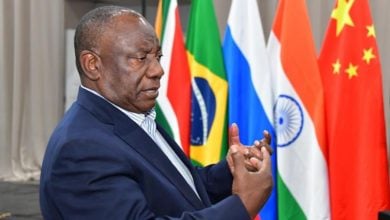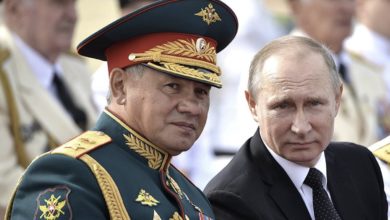The United States and Russia are locked in tense negotiations over the future of a treaty that places a limit on the number of nuclear warheads each county is allowed to deploy at any one time. The New Strategic Arms Reduction Treaty (New START) is currently set to expire early next year, but a clause in the treaty allows up to a five year extension. Russian and U.S. representatives are in intensive talks over if and under what circumstances an extension should be implemented. If the treaty lapses, the world will witness the collapse of a fundamental piece of the scaffolding that governs post-Cold War arms control.
The treaty was ratified in 2010 under the Obama administration as a continuation of the START 1 treaty signed in 1991 in the final months of the Soviet Union’s existence. The specifics of the current treaty include limiting deployed missiles and bombers to 700, warheads to 1500, and missile launchers to 800 in addition to language about monitoring and verification. The treaty limits the total number of warheads, but it does not prohibit the creation of new warheads so long as the old ones are dismantled at the same pace.
The Trump administration has taken a hard line in talks, insisting that Russia make major concessions in return for an extension to the treaty. U.S. envoy Marshall Billingslea earlier this month demanded a freeze on the number of nuclear warheads Russia holds in storage and the expansion of the negotiating framework to include all nuclear weapons (not just “strategic” ones).
The United States has also taken the position that China must participate in a future treaty to replace New START, something highly unrealistic and outside of Russia’s control. The Trump administration’s decision last year to pull out of the landmark Intermediate Range Nuclear Forces Treaty added to the atmosphere of mistrust.
Russia refused Billingslea’s demands, but in a bid to buy more time for the negotiation process proposed a counter-offer of a one-year extension with no preconditions. It later modified its position, accepting a freeze on its nuclear warhead reserve if the United States accepted the same requirement on its own arsenal.
The remaining issues that need to be decided on before negotiations can be completed include the definitions of a warhead and how each side would verify compliance with the warhead freeze. The United States is calling for a more comprehensive and rigorous inspection system than was originally set up under the Obama administration.
There is now renewed hope that an extension will ultimately be agreed upon. Author and journalist Daniel Lazare told Liberation News that even an agreement to keep negotiating is a positive sign for world peace, arguing that “The more the parties wrestle with [these] problems, the more they’ll try to come up with a basis for broadening talks. And the more they do that, the less the chance of something really untoward taking place, whether it’s a renewed arms race or an actual military exchange.”
The stakes for the talks are high. Time will tell if a new nuclear arms race in the tradition of the Cold War will deepen.





